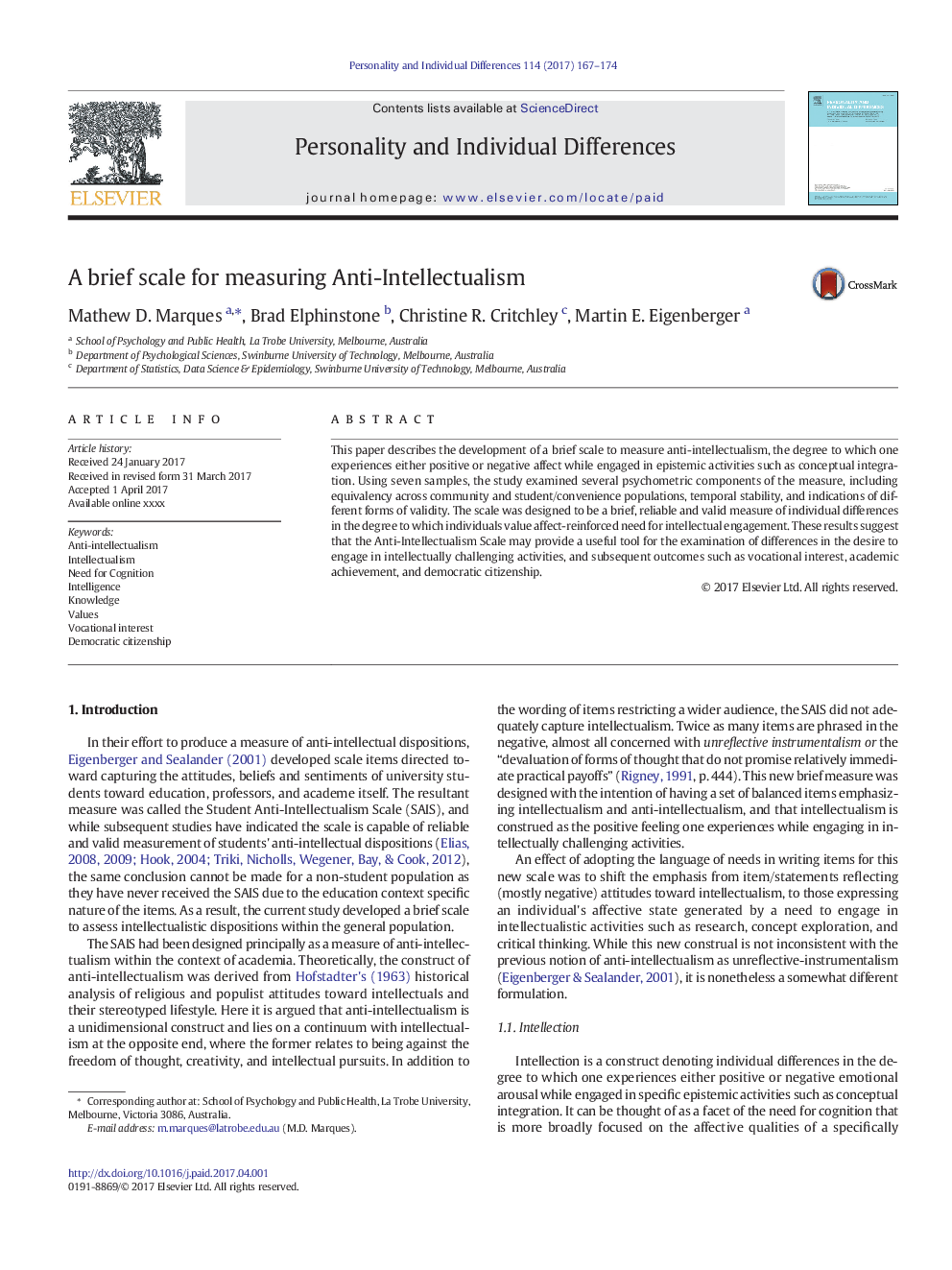ترجمه فارسی عنوان مقاله
مقیاس مختصر برای اندازه گیری ضد انطباقی
عنوان انگلیسی
A brief scale for measuring Anti-Intellectualism
| کد مقاله | سال انتشار | تعداد صفحات مقاله انگلیسی |
|---|---|---|
| 157097 | 2017 | 8 صفحه PDF |
منبع

Publisher : Elsevier - Science Direct (الزویر - ساینس دایرکت)
Journal : Personality and Individual Differences, Volume 114, 1 August 2017, Pages 167-174
ترجمه کلمات کلیدی
ضد روشنفکری، هوش ذهنی، نیاز به شناخت، هوش دانش، ارزش های، علاقه حرفه ای، شهروندی دموکراتیک،
کلمات کلیدی انگلیسی
Anti-intellectualism; Intellectualism; Need for Cognition; Intelligence; Knowledge; Values; Vocational interest; Democratic citizenship;
ترجمه چکیده
این مقاله توسعه یک مقیاس کوتاه برای اندازه گیری ضد روشنفکری را توصیف می کند، اینکه میزان تاثیر مثبت یا منفی چه تاثیری بر فعالیت های معرفتی دارد مانند ادغام مفهومی. با استفاده از هفت نمونه، مطالعه چندین متغیر روان سنجی اندازه گیری را انجام داد، از قبیل هم ارزی در میان جامعه و جامعه / دانش آموزان / ثروت، ثبات زمانی و نشانه های اشکال مختلف اعتبار. مقیاس برای اندازه گیری مختصر، قابل اعتماد و قابل اعتماد از تفاوت های فردی در درجه ای است که ارزش افراد به آن تأثیر می بخشد، نیاز به تقویت فکری برای تعامل فکری طراحی شده است. این نتایج نشان می دهد که مقیاس ضد هوش شناختی ممکن است یک ابزار مفید برای بررسی تفاوت ها در تمایل به شرکت در فعالیت های فکری و چالش انگیز، و نتایج پس از آن، از قبیل علاقه حرفه ای، موفقیت تحصیلی و شهروندی دموکراتیک باشد.

